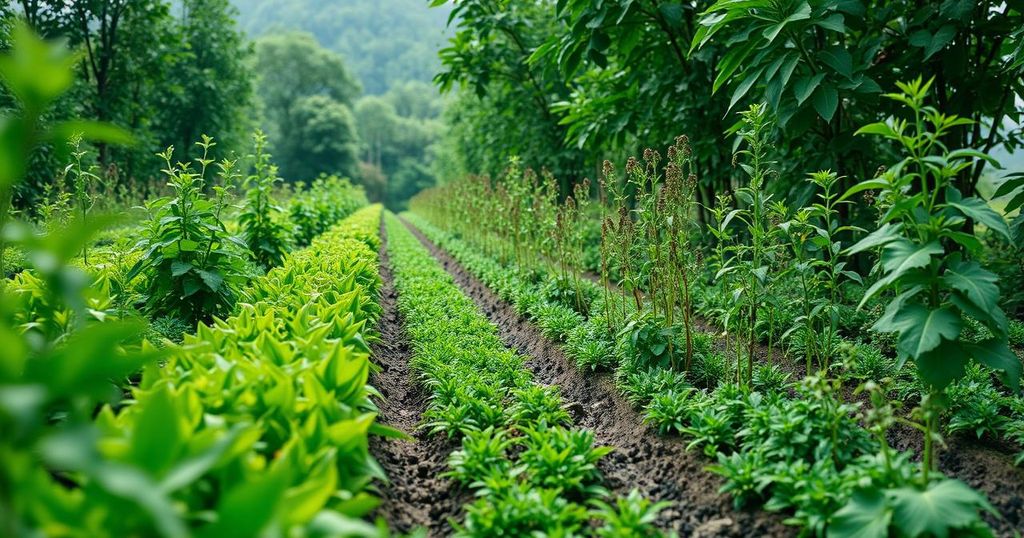Innovation-Driven Green Transition Essential for Agri-Food Sector Amid Climate Challenges

The 2024 World Agri-food Innovation Conference in Beijing highlighted the need for a green transition in agriculture to combat climate change. Experts emphasized the impacts of rising temperatures on food production, urging for investments in technological innovations. China’s commitment to enhancing food production sustainably was noted as a positive development amidst global food insecurity challenges.
During the 2024 World Agri-food Innovation Conference held in Beijing, a global panel of agricultural experts emphasized the critical necessity for an innovation-driven green transition in the agri-food sector to combat climate change and reduce carbon emissions. The insights provided at the conference highlighted that, although some regions have initially seen gains due to warmer temperatures, the overall agricultural landscape is experiencing significant disruptions due to climate variability, notably across Asia, Africa, and South America. Sun Qixin, President of China Agricultural University, cited alarming projections from mainstream models that suggest a reduction of food production by 6 to 8 percent for every 1°C rise in global temperatures unless technological advancements are implemented. While acknowledging that certain locales may benefit temporarily from climate shifts, he cautioned against neglecting the widespread adverse effects that unpredictable weather patterns are inflicting on global food production. He stressed the imperative for continued investment in research and technological innovations to ensure agricultural reforms do not compromise output. Additionally, Fu Wenge, a professor at the same university, noted that transformative innovations do not always require radical scientific breakthroughs; even modest improvements in management practices can yield significant results. He referenced the university’s Science and Technology Backyard project, which facilitates hands-on learning for students alongside rural farmers, promoting sustainable practices and high-yield crop varieties. Ismahane Elouafi, Executive Managing Director of the Consultative Group on International Agricultural Research (CGIAR), asserted that achieving a green transition necessitates multifaceted innovations encompassing technological, policy, and institutional changes to enable cooperative models among countries. She acknowledged the escalating impacts of climate change, urging that innovation is essential for effective transformation in agricultural systems. Patrick Caron, Vice-Chair of the CGIAR system board, emphasized a need for conscientious food production that prioritizes environmental health, noting that efforts to enhance food output must balance sustainability concerns. Despite a global increase in food insecurity, China’s ambitious goal to elevate its food production capacity to approximately 700 million metric tons by 2030 has been perceived as a beacon of hope, reflecting potential pathways for addressing food security issues globally. The conference coincided with World Food Day, during which Chinese officials reiterated the nation’s commitment to global food security initiatives, underscoring China’s preeminence in food production and its proactive stance in fostering international cooperation on agricultural development.
The 2024 World Agri-food Innovation Conference convened in Beijing, emphasizing vital discussions around the green transition in the agri-food sector as an urgent response to climate change challenges. Experts pointed to the agri-food sector’s significant contribution to global greenhouse gas emissions, advocating for research and innovative practices necessary for sustainable agricultural development. The discussions also highlighted China’s active role in contributing to global food security and addressing the challenges of food production under changing climatic conditions.
In summary, the emphasis on innovation-driven green transitions is crucial for the future of global agriculture, particularly in the face of climate change. While certain regions may benefit from warmer conditions, the overall trend indicates substantial risks to food production. Investment in technologies and practices, alongside international cooperation, will be essential in ensuring food security and sustainability in agricultural practices moving forward.
Original Source: en.people.cn






